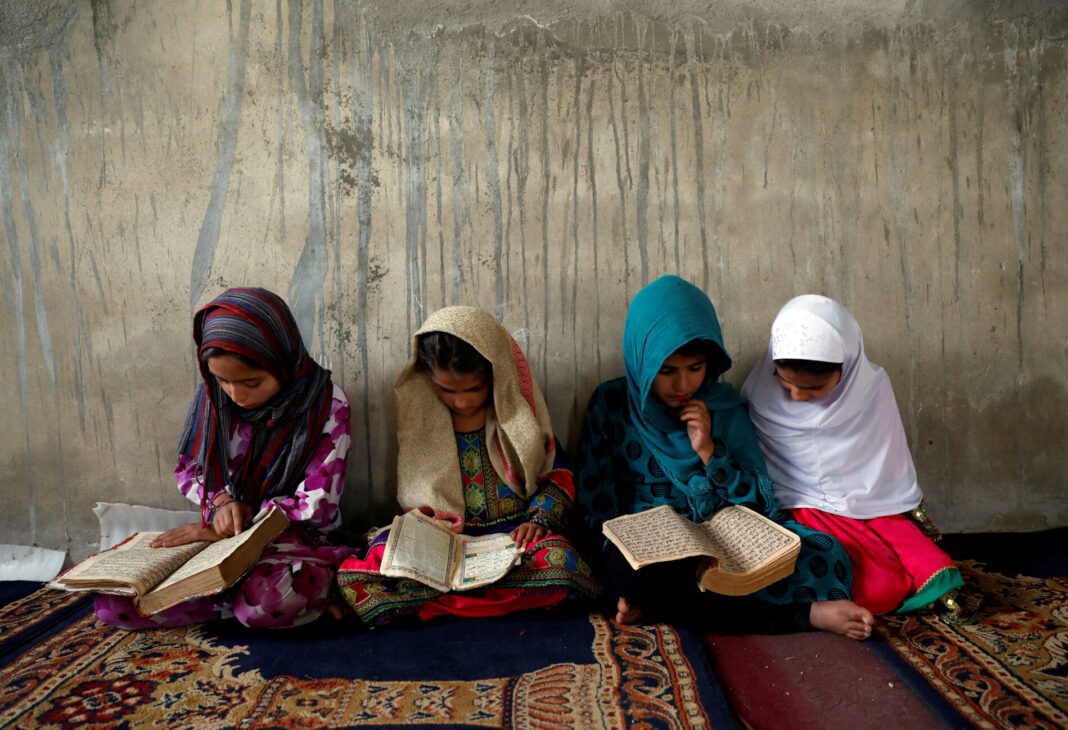On March 23, the first day of the school year in Afghanistan, secondary schools for girls did not reopen. The international reaction is immediate, funding and donations are at risk. Today the UN conference on humanitarian assistance to the country
The Afghan administration’s recent decision to deny the reopening of secondary schools for girls shines light on the country and the severe human rights consequences since the Taliban’s seizure of power. In particular, what has changed in humanitarian aid? To what extent are states and international donors willing to interact with this authority?
On March 23, the first day of the school year in Afghanistan, secondary schools’ girls were supposed to return to their desks after schools were closed at the end of August when the Taliban regained power in the country. In the end, however, there was no reopening: the Taliban regime issued a decree prohibiting female secondary school students from going to school. They were told to stay home until the Islamic Emirate announces its next decision, with a detailed plan to reopen them.
In addition to the outrage of the Afghan population and of the girls directly affected, with dozens of them protesting in the streets in Kabul to ask the government to withdraw its decision, there were also the reactions of the international community. Particularly, the dialogues with the Afghan government on international funding to alleviate the country’s drastic humanitarian situation were immediately affected.
The problem of funding and donations
Since the Taliban’s seizure of power last August, the financial and humanitarian aid system has indeed suffered a major setback due to the lack of international recognition of the new government. This happened especially because of the Taliban’s unfulfilled promise to respect fundamental human rights in the country, such as by guaranteeing access to education for all, especially girls, and ensuring freedom of movement and expression. As a result, the Taliban are now unable to access the more than 9 billion dollars held in American and European banks needed to finance development. These types of funding, which amount to billions of dollars, have helped the Afghan government function over the years, and their current absence exacerbates the poverty and food shortages that affect the country. According to data provided by the United Nations, some 23 million people suffer from acute hunger and 95 percent of the population does not eat enough food.
As Achim Steiner, UNDP administrator, said at a press conference in Kabul that the Taliban’s recent decision on girls’ access to school creates further doubts and could lead donors to further scale back their commitments, since they are already struggling with increased needs due to the Ukraine crisis.
If the obstacle were, as initially justified by the Taliban, technical problems in overcoming barriers to school access, it would be sufficient to specify to the international community the type of aid needed. Especially given the fact that the UN previously committed to pay teachers’ salaries to guarantee continuity in the right to education despite the serious economic crisis.
Nevertheless, the Afghan decision could be a more fundamental setback of the principle of access to quality education, on which the international community has heavily focused since the early moments of the negotiations. For this reason, the reactions of the international community and donors on relations with the Taliban could be much more serious.
The Afghanistan conference
In response to the closing of schools for girls, the United States cancelled its participation in the conference convened by UN Secretary General António Guterres, co-organized by the governments of Qatar, the United Kingdom and Germany for this afternoon. The meeting will be held at the ministerial level and will take place online through a virtual platform, with the participation of major international donors. The purpose is to secure increased resources to address the unprecedented level of humanitarian needs in Afghanistan in 2022. It also aims at highlighting the capacity and commitment of humanitarian partners to humanitarian assistance in the country, with a focus on access to basic services and economic resources in the country, given the political realities of the moment.
Several experts, such as Martin Barber, UN Humanitarian Coordinator for Afghanistan 1995-96, and Mark Bowden , former Deputy Special Representative of the Secretary-General and UN Humanitarian Coordinator for Afghanistan 2012-2017, suggest the importance of discussing during the meeting what they consider to be the only measure that would allow for the effective use of the money donated for Afghanistan, namely allowing the Afghan central bank to withdraw modest amount of money- about 150 million dollars per month – from the reserves in international banks. This decision would bring the banking system back to life and facilitate the payment of bills and salaries, with effective administration of humanitarian aid. Governments are reluctant to this possibility because allowing the Afghan central bank to draw on its reserves would confer some legitimacy to the Taliban administration. However, the suffering of millions of ordinary Afghans continues to remain the priority in this emergency.
Today’s summit could therefore bring new scenarios on the precarious balance between population support and political ties. Yet, it is still uncertain to what extent international donors are willing to take new positions and interact with the Taliban authority.
On March 23, the first day of the school year in Afghanistan, secondary schools for girls did not reopen. The international reaction is immediate, funding and donations are at risk. Today the UN conference on humanitarian assistance to the country





